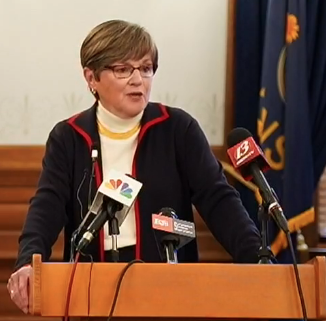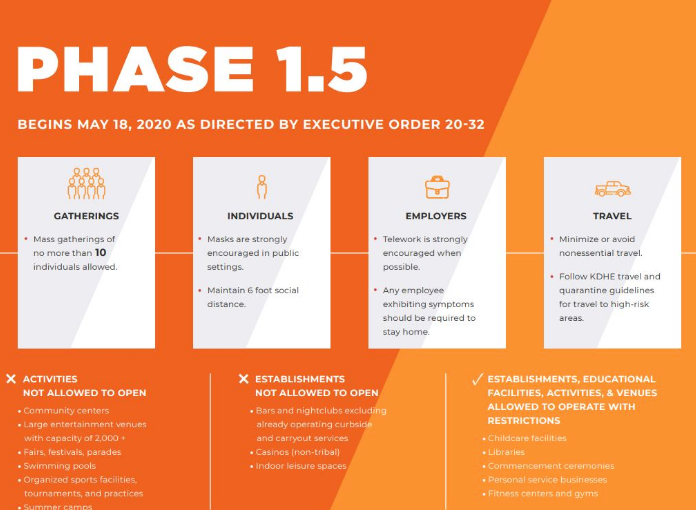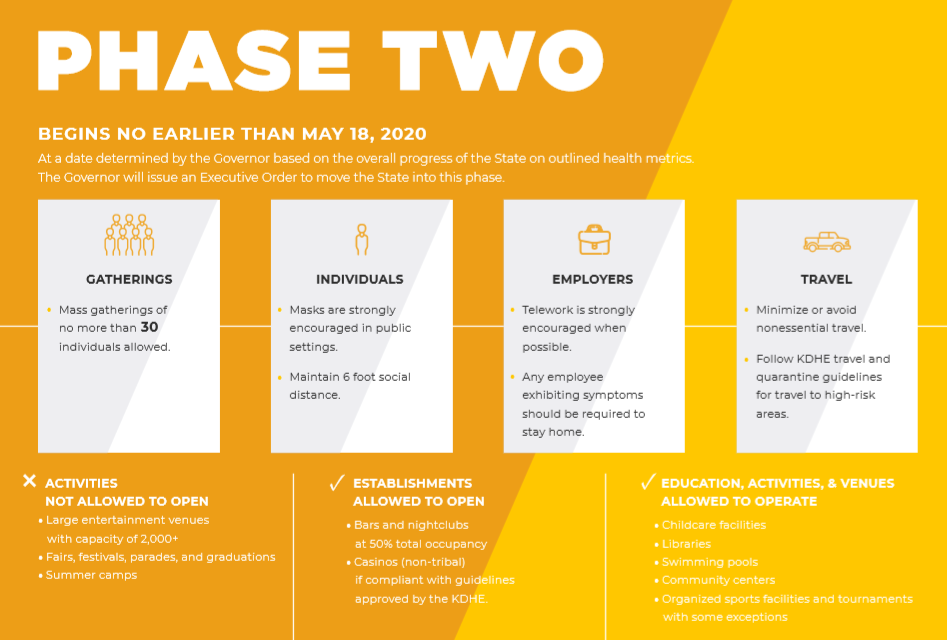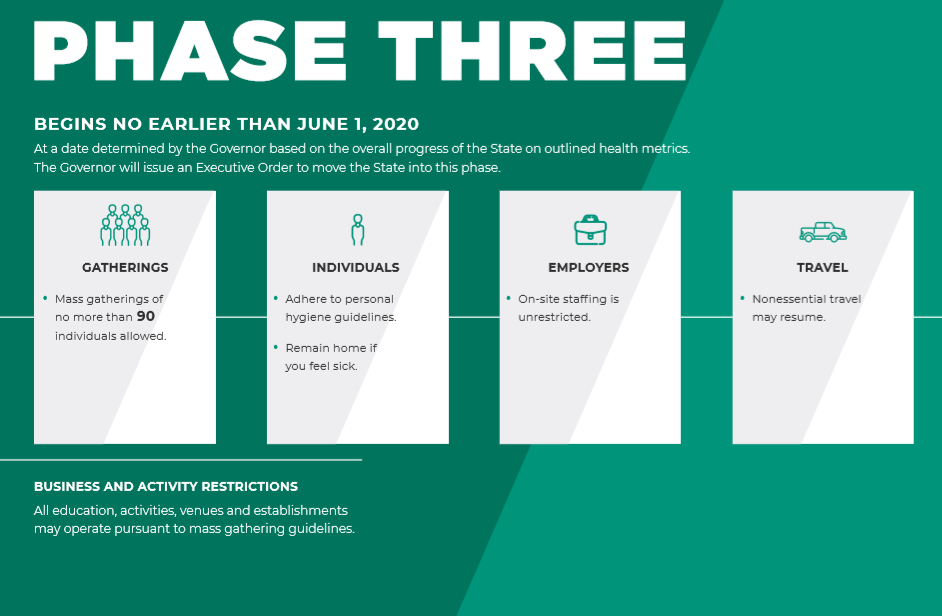
TOPEKA, Kan. (AP) — Democratic Gov. Laura Kelly on Thursday slowed down the reopening of Kansas’ economy, ordering bars and bowling alleys to remain closed through the end of the month and keeping some coronavirus-inspired restrictions in place until near the end of June.

Top Republican legislators already have moved aggressively to take control of the reopening by extending a disaster declaration Kelly issued only through Memorial Day, May 25, to give lawmakers a chance to rewrite their own law guiding the process. State law gives Kelly broad power under an emergency declaration, and she had wanted the current one extended into mid-June.
The governor had expected to lift some restrictions Monday, but her new order modifies that plan to reflect her administration’s concern that the spread of the novel coronavirus is not yet decreasing. A limit on public gatherings of 10 or fewer people will remain in place, rather than being increased to 30 on Monday.
Kelly’s new order will allow barbershops, hair salons, nail salons, tattoo parlors, tanning salons, gyms and fitness centers to reopen as planned Monday. Owners of such businesses had been among the loudest critics of Kelly’s reopening plan, saying they could resume operations safely with deep cleaning and social distancing.

Under the governor’s new order, salons still will have to take customers by appointment only, while gym and fitness centers won’t be allowed to have group classes or use their locker rooms for anything other than bathroom facilities.
Bars, night clubs, bowling alleys would remain closed until at least June 1 under Kelly’s new order, and summer camps, fairs and festivals would not be allowed until at least June 15.
The governor is allowing high school and college graduations to go forward, but only if indoor ceremonies are limited to 10 people at a time. Outdoor ceremonies are allowed, either with people 6 feet apart in a large space or as “drive-through” events in which families drive up to a stage, the graduate gets out, walks across and gets back into a car.
The changes mean that public gatherings of up to 30 people won’t be allowed until June 1, and gatherings of up to 90 people won’t be allowed until June 15. The last restrictions wouldn’t be lifted until June 29 — two weeks later than previously planned.

Meanwhile, an eastern Kansas county is defending a policy that directs business owners to collect information about their customers as an effort to help trace the contacts of infected people.
Attorneys for Linn County, its county commission and its health director filed a response Thursday to a federal lawsuit from two business operators. The county’s attorneys said a May 1 order by the local health director does not violate rights against unreasonable searches that are protected by the U.S. Constitution.
The county said in its filing that the business operators wrongly suggest that the county would make blanket demands for information when the local health department would ask only for data about specific customers in contact with infected people over the previous month.
___



